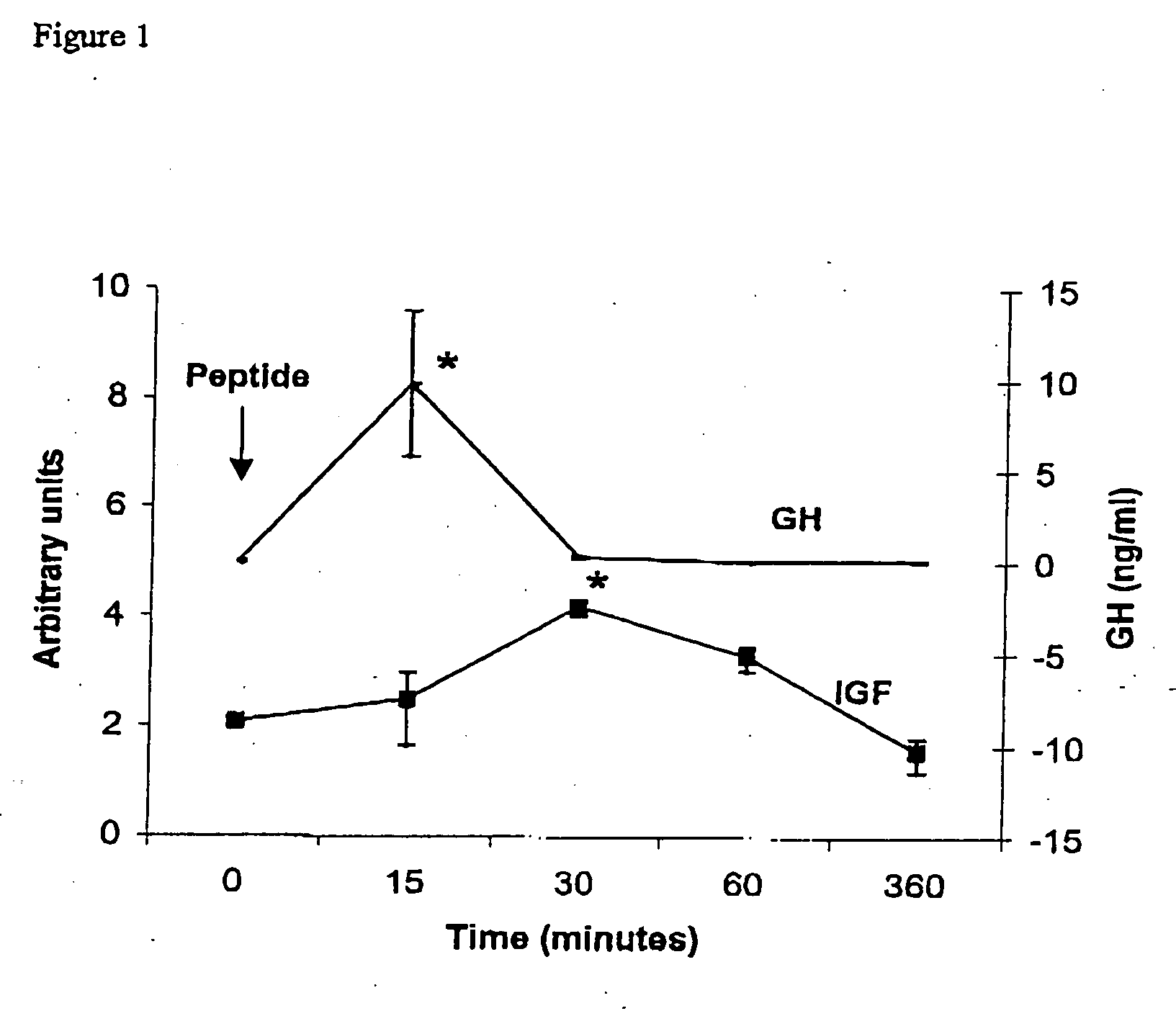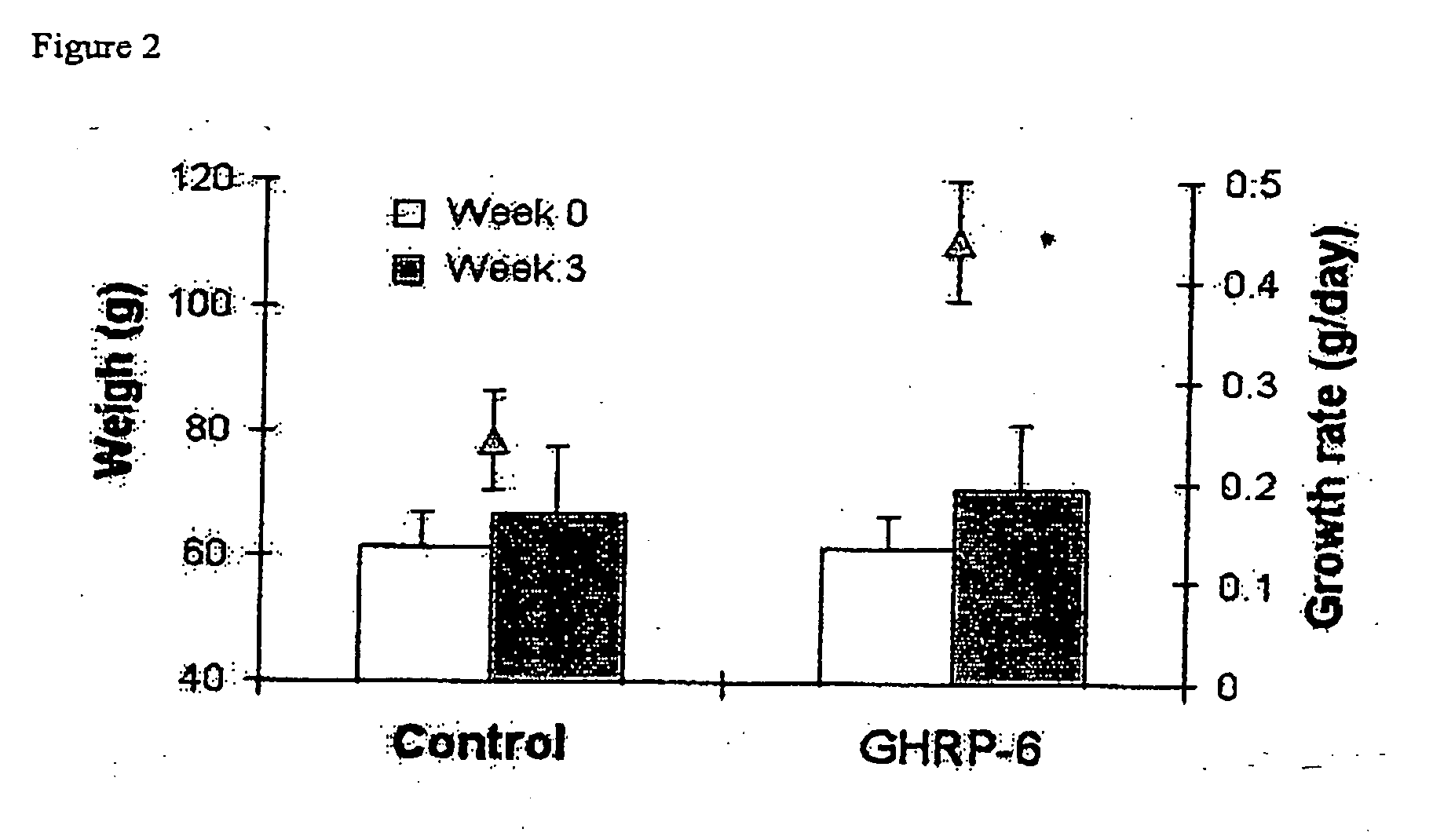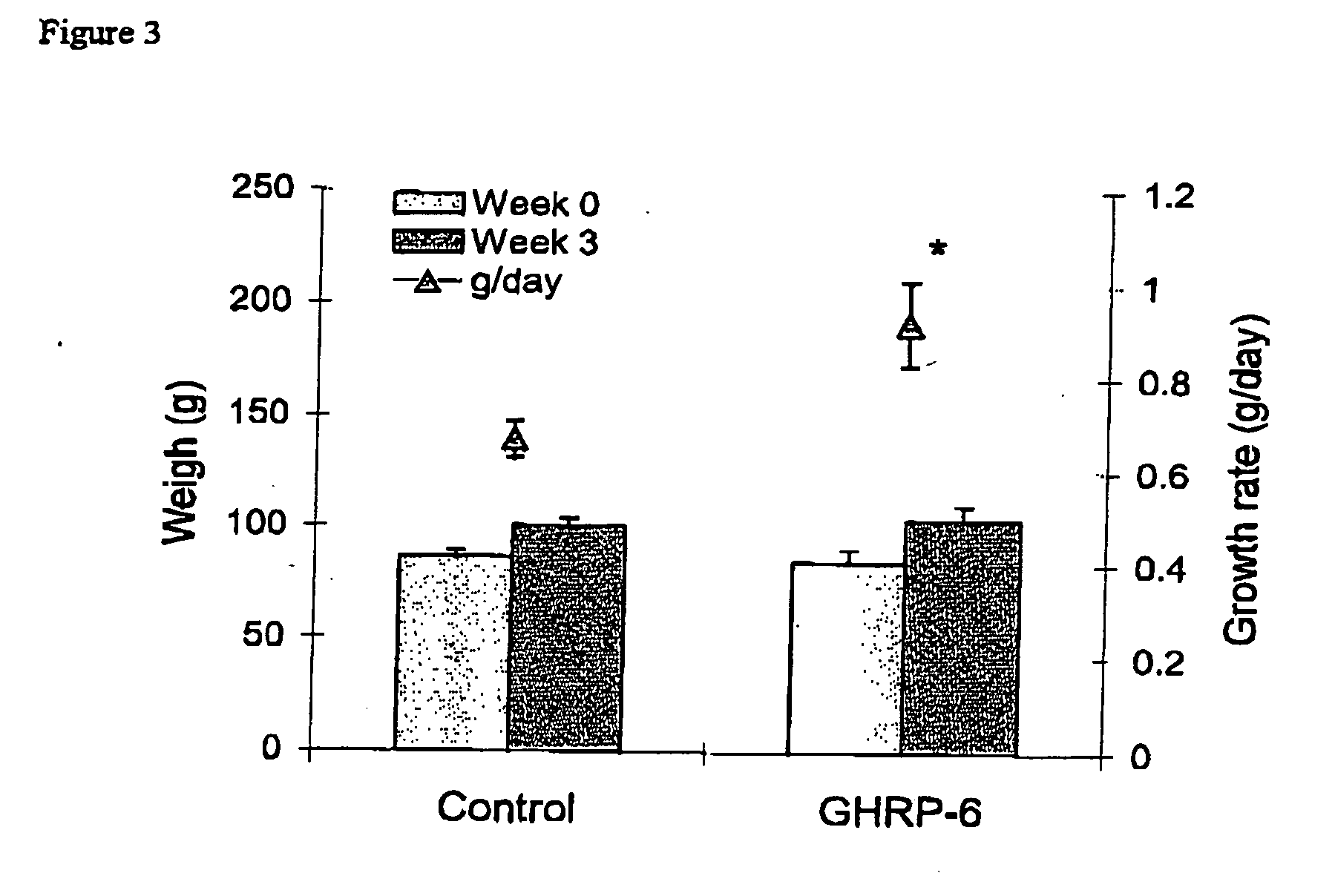Method of stimulating growth and resistance to diseases of aquatic organisms
- Summary
- Abstract
- Description
- Claims
- Application Information
AI Technical Summary
Benefits of technology
Problems solved by technology
Method used
Image
Examples
example 1
Biological Activity Demonstration of the GHRP-6 in Fish
[0033] Fifteen tilapias with average weight 71±28 g were used for the experiment The GHRP-6 was injected with hexapeptide at 0.1 μg / gbw. The liver and blood samples were drawn before the treatment and 15 min, 30 min, 1 h and 6 h after the peptide injection (three animals per group). The serum and liver sample were collected and stored at −70° C. until used for total RNA isolation and Northern blot analysis. A serum sample was also taken before the treatment in all animals.
[0034] Northern blot analysis was used to measure the relative IGF mRNA levels in tilapia injected with the peptide. Total RNA was purified from liver samples as described by Chomczynski and Sacchi (Chomczynski P, Sacchi N. Single step method of RNA isolation by acid guanidium thiocyanate-phenol-chloroform extraction. Anal Biochem 1987; 162:156-59). Twenty μg of RNA were fractionated on 1% formaldehyde agarose gels and transferred to nylon membranes (Hybond N...
example 2
Growth Promoting Activity of GHRP-6 in Juvenile (Oreochromis sp) Tilapia
2.1 Intaperitoneal Injection
[0037] Juvenile hybrid tilapia (Oreochromis aureus) supplied by the Aquadique Aquaculture Station (Havana, Cuba) were acclimated in a 500 litters tank with re-circulating freshwater at 25° C. with constant photoperiod (14 hours light and 10 hours darkness) and fed with commercially prepared pellets (CENPALAB, Havana, Cuba). Daily rations equivalent to 5% of body weight were administered twice a day until they were used in the experiments.
[0038] GHRP-6 (BACHEM, Switzerland) was diluted in PBS and injected twice a week during three weeks at 0.1 μg per gram of fish body weight (gbw). The peptide was administered to a group of eight male tilapia with average body weight of 61±14.3 g and seven male tilapia with average body weight of 61.41±29.67 g were injected with PBS as a control group.
[0039] Body weight in grams was measured weekly. In all the experiments the animals were labeled ...
example 3
Growth Promoting Activity of GHRP-4 in Juvenile (Oreochromis sp) Tilapia by Immersion
[0044] Tilapias (Oreochromis aureus) of 1.5 g of mean weigh were treated by immersion with two different doses of GHRP-6 (10 μg / 100 ml and 100 μg / 100 ml). A similar control group was treated with physiological solution.
[0045] In the experiment was measured the weigh (Table 1), biochemical blood parameters (Table 2), number of parasite in gill (Trichodinicos (Table 3) y Helmintos mongeneos (Table 4)) and humidity and protein concentration in muscle
[0046] Fifteen animals per group (3x) with mean weigh of 1 g were selected for the assay. In 9 tank of 40 liters were developed the experiment. One a week application was done for 45 days.
The Groups and Doses were Distributed as Followed:
[0047] Group I 10 μg / 100 ml (Treatment 1) [0048] Group II 100 μg / 100 ml (Treatment 2)
[0049] Group III Control (Physiological solution)
TABLE 1Mean weigh measured in the different groups of tilapiatreated with GHRP-6...
PUM
| Property | Measurement | Unit |
|---|---|---|
| wet weight | aaaaa | aaaaa |
| wet weight | aaaaa | aaaaa |
| weight | aaaaa | aaaaa |
Abstract
Description
Claims
Application Information
 Login to View More
Login to View More - R&D
- Intellectual Property
- Life Sciences
- Materials
- Tech Scout
- Unparalleled Data Quality
- Higher Quality Content
- 60% Fewer Hallucinations
Browse by: Latest US Patents, China's latest patents, Technical Efficacy Thesaurus, Application Domain, Technology Topic, Popular Technical Reports.
© 2025 PatSnap. All rights reserved.Legal|Privacy policy|Modern Slavery Act Transparency Statement|Sitemap|About US| Contact US: help@patsnap.com



